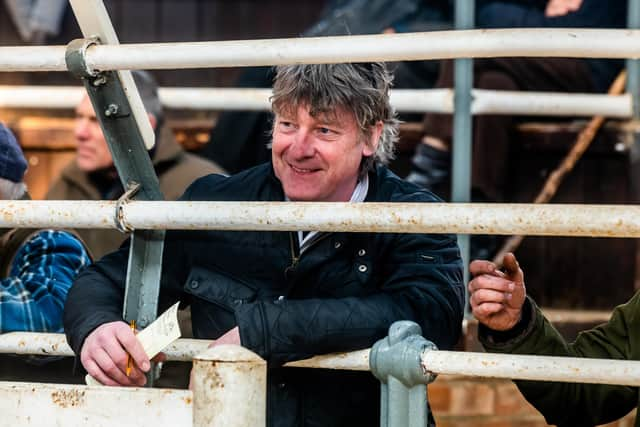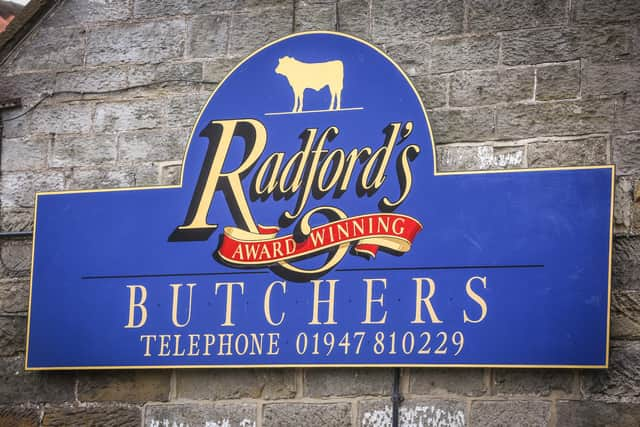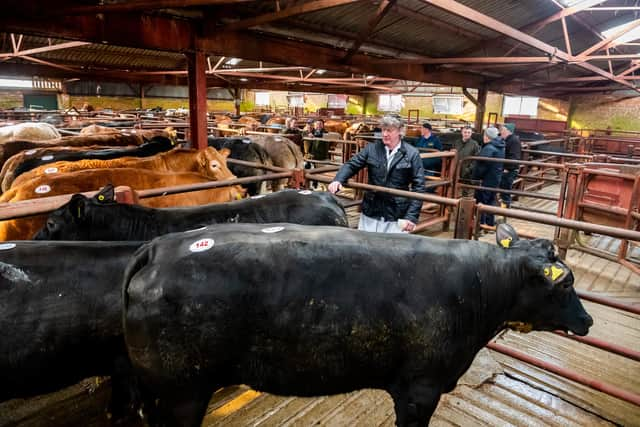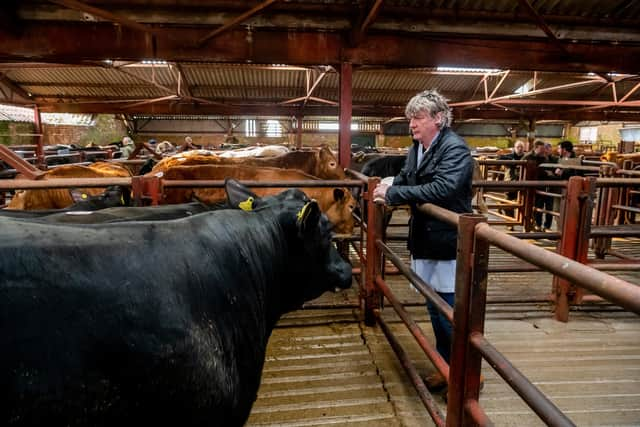Whitby butcher, Andrew Radford, on tracing beef from market to a meal and why he will always pay top price
I’m told that Andrew Radford loves cooking - and it is well known in this part of the world that his standing in North Yorkshire as a butcher is not in question.
This, he says, is key to a successful business in the trade.
Advertisement
Hide AdAdvertisement
Hide AdHe joined it in the 1980s after a spell managing a family small-holding with sheep, pigs and finishing beef cattle before selling it to put funds into the butcher shop he acquired in Sleights, near Whitby, in 1984.


Radford’s Butchers is thriving and while supermarket shoppers were scrabbling around for salad tomatoes a few weeks ago - his customers weren’t.
A proper farm shop, the Sleights store can supply you with a full meal from the meat to the veg, bread, sauces and even the wine.
Of course, this makes it popular but ask many a local who buys from there and they will tell you it is the meat that matters.
Advertisement
Hide AdAdvertisement
Hide AdAnd while many things have changed since 1984, prices particularly, Mr Radford maintains his reputation by a quality product.


On a very fresh Tuesday morning in February we meet at Malton Cattle Market. Mr Radford comes here every week, without fail. And has done for the best part of 30 years, 40 if you count other local markets such as Ruswarp.
As he takes a look at the beasts brought to market that day, a farmer taps him on the shoulder and nods to a pen of cattle.
Mr Radford says: “I look around, when I come here week in, week out, year after year I know whose cattle is whose before it is pointed out. I select, over the year, from six to eight farms. Three farms I guarantee that every week I will buy from.”
Advertisement
Hide AdAdvertisement
Hide AdThat means that when anyone asks in his shop, he can tell you which farm that meat came from - and they aren’t that far away.


He adds: “I am familiar with the farm, I go to the farm and I am seeing cattle as they are being born and reared from day one and two years down the line they come through the market.
“We are only selling what you are seeing. If it says it comes from that farm at that time of year, that is exactly what you will get. That is important because we do get a lot of people wanting to know where it comes from.”
It builds a relationship between the farmer and the butcher and while both are trying to get the best price they can, it improves the quality at both sides of the table.
Advertisement
Hide AdAdvertisement
Hide AdMr Radford wants the best animals and the farmers want him to buy theirs - so they both have to be at the top end of the game.


“We are more of a farm shop because of that relationship, consistency and seasonality. At markets, farmers know we are coming, they know what sort of product I like and they know I am coming every week.”
At the end of the auction, he takes his tickets to the cattle market office to pay before he leaves. It was a decent bill, some of it to the afore-mentioned farmer, but he was planning for what customers will be buying from his shop for their tables this Easter weekend.
He says: “Prices at the moment, all they do is go up. Nothing is dropping. That is relative to anything in the food industry - fruit, veg and ingredients for us to prepare products. The very best cattle will always sell for a premium price and I have always bought at the top end of the market. While prices are what they are - we will still be there because we need producers to keep coming with their premium livestock for the benefit of our shop and trade.”
